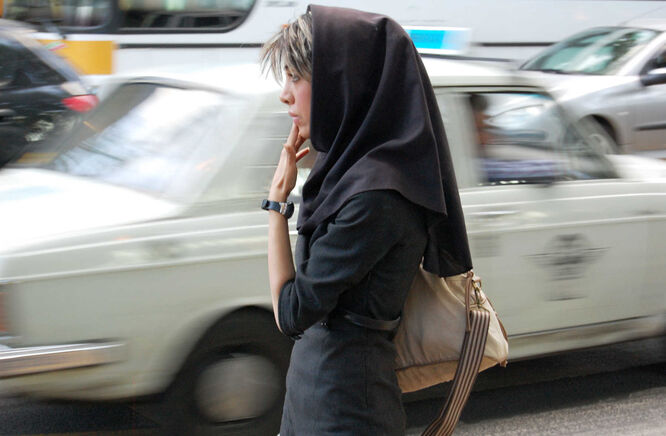Iran: The Politics of People
By Rick Steves
January 2009
Two young Iranian parents smiled at me, showing mock desperation as their little boy and girl eagerly dragged them into a shop famous for its pistachio ice-cream sandwiches. Around the corner, filling the side of a 15-story building, a government-sponsored propaganda mural showed a perverted American flag, with skulls for stars and falling bombs for stripes.
That bizarre mixture — of saber-rattling politics alongside the personal warmth of individual locals — is what struck me on my recent 12-day trip to Iran to film a public-television show. I found Iran to be perhaps the most misunderstood and fascinating land I've ever visited. And I learned a lot.
The country is not free. It seems that people — motivated by fear of Western influences and love of their children — have forgone democracy for their theocracy. Parents told me, "We do not want our girls to grow up to be Britney Spears," and they are willing to sacrifice some freedom to achieve that goal. They feel their "revolution of values" provides an environment where they can raise their children free from the cheap sex, drug abuse, and crass materialism of the West.
Iranian women must wear a scarf, but many leave a tuft of hair showing at the forehead. After several days, that provocative tuft attracted my eye like cleavage. Making sure that what they can show is as beautiful as possible, Iranian women lead the world in nose-jobs per capita. Faces are beautifully made up, and — when so much else is covered — can be particularly expressive and mysterious. Eye contact is riveting.
Before arriving in Iran, I was so afraid of anti-Americanism that we had nearly left our big, expensive TV camera in Athens and considered flying in with a less obtrusive model. But once there, I found people curious, courteous, and quick to smile — especially when they learned we were American. I've never had such fun with people or found them so chatty than on the streets of Iran.
Tehran is modern and bustling, with thriving shopping malls, cars clogging the streets, and most people wearing Western-style clothes. Unlike many Muslim capitals, minarets do not dot the skyline, and I barely heard a call to prayer.
And yet it's clearly a theocracy. Multiple TV stations broadcast religious programming (along with BBC and CNN) that's perfect for praying — images of the sun setting on the sea, or the pilgrimage center in Mecca in real-time. In the US, billboards and ads encourage us to consume, but in Iran, government-sponsored billboards, Muzak, and TV programming is all about the teachings of great holy men.
I asked my guide if it's okay to be non-Muslim in Iran. "Yes," he said, "We have religious freedom as long as it is not offensive to Islam." Christian? "Sure." Jewish? "Sure." Baha'i? "No. We believe that Mohammed — who came in the seventh century — was the last prophet, so the Baha'i prophet (19th century) is offensive to Islam."
I asked, "What if you want to get somewhere in the military or government?"
My guide answered, "Then you better be a Muslim — a practicing, Shiite Muslim."
Every film crew stops at the former US Embassy. It was here in 1979 that a gang of revolutionary students stormed what they called the "Den of Spies" and held 52 Americans hostage for 444 days. For Iranians back then, it was a proud moment of triumph against the nation that had meddled in their affairs for years. The embassy wall is still covered with anti-American murals painted at that time. But the hostage crisis was 30 years ago; most Iranians weren't even born then. It's ancient history to our young guide.
With our work done, we hurried to catch our flight home. As we crawled through Tehran's traffic, our driver cursed, "Death to traffic."
Shocked, I said, "What? I thought it was death to America."
He said, "Here in Iran, when something frustrates us and is out of our control, we say 'death' to that."
Then I thought, when people in my society say "Damn those teenagers," they don't mean they wish them to die and burn in hell for eternity…they just want the kids to turn down the music.
Boarding our plane, the Air France flight attendants — so stylish with hair flowing freely — seemed to welcome us as if onto a life raft. Women pulled off their scarves, wine was poured, and we flew west with the raw footage of a program we hoped would humanize a proud country of 70 million people.

